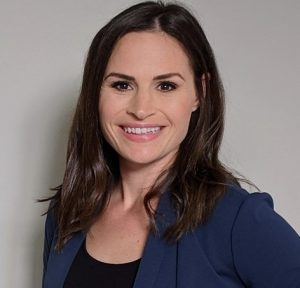Outside of unbearably dangerous jobs and some science-fiction scenarios, you don’t want your company staffed completely by robots. You want a team of breathing, feeling humans…people ready to use their experience and innovation to solve your stickiest business problems.
In other words, algorithms will only get you so far. You also need original, outside-the-box solutions as well. That means you need to engage higher-level reasoning skills to outwit the competition. As such, you need to fill your team with people who bring exceptional critical-thinking abilities.
But how do you test this in your job candidates? How can you know how your applicants will respond in unusual circumstances?
You can never know for sure. But there are ways to gather information about this crucial aspect of a job seeker’s skill set. With that in mind, here are a few ways you can test your candidates’ critical-thinking abilities.
Talk About Their Past Experiences
They say,y “past behavior is the best predictor of future behavior.” In other words, you need to find candidates who have shown good critical thinking skills in the past. These are the ones most likely to display these traits in the future.
Unfortunately, it’s not always easy to get an honest look at a person’s background. After all, every candidate will say they have good critical-thinking skills. How can you tell the real deal from the fakers?
The key is asking for details. Have a candidate run through a past scenario. You’ll get a glimpse into their process and an indication of what to expect if you offer them a job.
Example: Tell us about a time when you had to act quickly in a situation where you couldn’t gather substantial information first.
Ask Hypotheticals
Sometimes hearing an old war story doesn’t provide you with enough information. More than just a general look at their critical-thinking skills, you need something more specific. You want to know how a person can apply their experience to your particular problems.
In that case, tailor the question to the immediate scenario. Ask a hypothetical question that drills down on the distinct problems that you face every day. Again, have your candidate walk through their process. Only in this case, see how they apply it to a fictional scenario that you’ve given them.
Here, you can see better if a candidate can think on their feet. You put them on the spot. They can’t offer a practiced anecdote from their past. They have to respond to the prompt you’ve given.
Example: A customer has a problem with our product but is having trouble explaining the specific issue. Walk us through how you would handle the conversation.
Use a Formal Test
We live in an age of data and measurables. Why not apply this to the area of critical thinking?
Of course, we’ve already warned you against looking for robots. But a formal critical-thinking test can provide an important framework for judgement. The score here shouldn’t be your only measure of a candidate’s ability. But it can provide an excellent data point for further consideration.
By issuing a scored test, it becomes easier to contrast candidates. You get a numerical measure, providing you with a more objective evaluation. Plus, each applicant responds in a way that encourages direct comparison. The test is the same for everyone.
Examples: Aptitude-Test.com; 123test.com
You want to staff your organization with excellent critical thinkers. To find these top performers, it helps to have expert advice. A top staffing agency, like Recruiting In Motion, can locate the perfect candidates for your open positions.






































































































